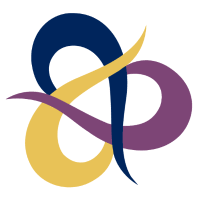Objectives of the Assignment
The main objective of this assignment is to assist Local Government Authorities in Pemba to evaluate their solid and liquid waste collection, disposal and recycling’s policies, bylaws, regulations and resources, draft service improvement plans, propose funding mechanisms to improve the delivery of solid waste collection and disposal, as well as the recycling of the same and to recommend follow-on volunteer assignments in these areas .
Background
The Tanzania Enabling Growth through Investment and Enterprise Program (ENGINE) is a four-year USAID-funded Feed the Future Tanzania activity that aims to streamline and enhance many of the regulatory, informational and financial channels that encourage domestic and foreign investment in the southern mainland agricultural regions of Mbeya, Morogoro, and Iringa, and in Zanzibar.
ENGINE works at the district Local Government Authority (LGA) level, using a broad-based approach to engage with district councils, private sector associations, business development service providers, financial institutions and small and medium enterprises. The program’s activities are divided into three main components:
- Implement policies for growth. Build the capacity of the private sector to effectively dialogue with the government to set the policy agenda and improve the capacity of the public sector to implement policies.
- Equip businesses for growth. Strengthen SME capacity and foster the growth and capacity of a sustainable market for business development services (BDS) in Tanzania.
- Access to finance for growth. Broaden access to finance for small and medium-sized enterprises (SMEs) in all sectors, especially women and youth entrepreneurs and those working within agricultural value chains (excluding primary producers), to facilitate increased business viability, growth, and investment.
Background:
The Local Government Reform Program (Tanzania mainland) and Decentralization by Devolution (in Zanzibar) are key national Government development initiatives, and acknowledges that well-functioning Local Government Authorities (LGAs), with a clear mandate to facilitate broad-based growth and to improve service delivery to all communities, must be supported. However, these processes are incomplete, and LGAs often lack the resources or technical tools to implement them to have a positive impact on the business sector.
Local Government Authorities are responsible for the collection and disposal of solid and liquid waste. They frequently charge fees or taxes to provide these services, and often use commercial vendors as sub-contractors to assist with service delivery. As in many countries, the issue of solid waste collection and disposal is one of extreme interest to community members and therefore local governments, as poor performance in this area can have adverse effects on sanitation, disease control, public health, hazardous materials, environmental quality of life issues such as odor, appearance, animal control, and more. These factors, in turn, can have adverse impacts on the business environment (viability, profit, etc.) and the investment climate.
Problem Statement
Local Government Authorities (LGAs) in Pemba often lack resources to effectively collect and dispose of solid and liquid waste, including trash, food waste, vegetation (green waste), and hazardous materials, and to recycle waste, and business customers receiving solid waste removal services report significant problems. Existing waste management/disposal and recycling policies, by-laws and existing regulations require review and reform. Additionally, two LGAs, Chake Chake and Wete need capacity building in solid waste collection technics, garbage fees collection strategies, recycling of solid waste and proper handling liquid wastes.
Tasks
The Expert Volunteer will complete the following tasks:
- Attend an orientation meeting with ENGINE Program staff;
- Accompanied by the relevant ENGINE staff, attend an introductory meeting with the Local Government Authority’s leadership and technical staff to discuss the Expert Volunteer assignment and to review its objectives;
- Facilitate a consultation workshop with a solid waste, liquid waste and recycling technical working group (comprised of public and private sector individuals) to elicit their input/feedback on the prioritization of tasks to achieve rapid results in evaluating relevant policies, bylaws, regulations, and fees. And to provide information on training needed on best practices in solid and liquid waste management, landfill management, and recycling, and to propose improvements to create a strengthened business-enabling environment;
- In consultation and collaboration with technical working group;
- Review solid waste, liquid waste and recycling policies and practices and propose reforms to the same.
- Engage private sector stakeholders in a public private dialogue (PPD) to explore options for improving private sector participation in solid and liquid waste, and recycling operations and management. Such options could include investigating external funding for capital equipment (trucks, scales, etc. through public private partnerships (PPPs), leasing or equipment loans) and capacity building for for-profit, private companies or Community Based Organizations (CBOs), including efforts to promote a market for local users of recyclable raw materials who can add value by turning these recyclables into value added products, as well as firms interested in composting for agricultural purposes.
- Prepare a Solid and Liquid Waste, and Recycling Service Improvement Plan that proposes next steps to implement strengthening of the business enabling environment through improved waste and recycling management and by increasing the capacity of Community Based Organizations involved in garbage collection;
- Analyze LGA solid & liquid waste, and recycling revenues versus related LGA expenditures, and make specific bylaw, regulatory and fee level recommendations related to budget changes and funding sources to implement the above-mentioned Service Improvement Plan, including such options as external grant funding, PPPs, and evaluating landfill fees based on tonnage rather than a flat per trip fee, to create incentives to divert recyclable and compostable waste from landfills;
- Write a Final Report summarizing findings, recommendations and conclusions related to the assignment and including the impact on women and youth, as well as a discussion of the LGA’s solid and liquid waste, and recycling-related organizational development challenges and proposed solutions;
- Provide exit debriefings to LGA leadership (including the local technical working group), ENGINE, USAID and other relevant anchor institutions/key stakeholders, including LGA’s organizational development challenges and proposed solutions.
Deliverables
The Expert Volunteer will submit the following deliverables:
- Minutes/notes of the meetings/training/workshops described in Tasks B, C, and D above and other project meetings.
- Documents developed with the technical working group (Task D above):
- Written description of LGA solid waste and recycling services, procedures, systems and fee structures;
- Minutes and participant lists for PPDs regarding solid and liquid waste and recycling;
- Solid & Liquid Waste and Recycling Service Improvement Plan and Action Plan;
- Solid Waste and Recycling financial policy Recommendations (Revenue and Expense arrangements);
- List of solid waste and recycling policies needing reform and possible reform proposals.
Expert Volunteer will share draft report to the LGA management for clearance and approval. The Expert V olunteer will then submit a Final Trip Report to the ENGINE Program that includes the following sections:
A. Introduction;
B. Methodology;
C. Findings, Conclusions, and Recommendations related to the Local Government Authority’s needs in the area of solid and liquid waste and recycling management and policy;
D.Discussion of assignment objectives, with particular reference to women and youth, and how they were met or why they were not met.
Additionally, the Expert Volunteer will provide exit debriefings (Task F above).
Expert Volunteer Qualifications
The ideal Waste Management Specialist Expert Volunteer will have the following skills and qualifications:
- 5+ years of experience working within local government, preferably with a role in drafting, reviewing/reforming, and implementing policies;
- Experience with public policies related to solid and liquid waste and recycling management;
- University degree in sanitation (solid and liquid waste) management, engineering, policy, public administration, or another relevant field;
- A proven track record of organizational development;
- Experience in stakeholder engagement, consultation, and facilitation;
- Training skills, including participatory training in group settings. Training and consultation experience utilizing a translator or interpreter is an added plus;
- Self-motivated, proactive, detail-oriented, mature, professional team player, who is a strong people/person and communicator, with good inter-personal skills;
- Ability to address issues, challenges, questions, and concerns in a professional, respectful, logical, and timely manner;
- Works well in a multi-cultural setting;
- Well-developed writing skills in English and the ability to express one’s self clearly and concisely;
- Good computer skills in MS Office.

